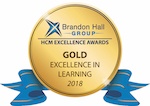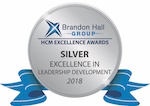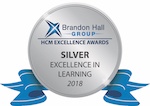Providence St. Joseph Health (PSJH) was facing high turnover and tough talent attraction challenges. More specifically, PSJH needed to train nurse managers in a way that would be easily applicable on the job—without taking them away from work for too long.
Their solution: A groundbreaking blended learning experience from Intrepid by VitalSource that leaps the healthcare training industry forward and has changed the culture of learning at PSJH.



The Challenge
The program targeted the approximately 930 nurse managers working within the Providence St. Joseph Health (PSJH) system. The goal: enhance the leadership skills of the nurse manager population in order to prepare these individuals for higher-level roles. PSJH aimed to promote the nurse manager role as a professional specialty, reduce the amount of turnover among caregivers and nurse managers, and improve caregiver engagement.
One of the key challenges was to create a curriculum team that was a true partnership between the learning and development department and the clinical nursing leadership. It was also imperative that nurse managers viewed the program as both valuable and relevant to their practice. Additionally, the delivery had to be flexible enough to meet the needs of the busy nurse managers, who were already stretched thin.
The Solution
The program was designed as a five-month leadership development learning journey. The blended learning approach focused on enhancing leadership skills such as communication, setting goals, managing teams, coaching, resolving conflicts, and leading change initiatives. It also covered self-care, financial acumen, development planning, and recognizing unconscious bias. A pilot version was delivered first, and feedback from pilot participants, faculty, and nursing leadership was used to inform the design of the scaled version.
The pilot consisted of a five-month learning journey that wrapped an online experience around four in-person sessions. PSJH used the Intrepid platform to deliver pre- and post-work around live in-person events. The four in-person events were wrapped with online content, peer discussions, and Missions that applied learning to the real job. Smaller peer groups were formed at the in-person events to foster networking, and also continued with online discussion forums.
The online portion included assignment information with due dates, as well as Missions that applied the learning on the job. For example, in one session, nurse managers had to choose a PowerPoint and deliver the presentation to their team. The nurse managers wrote up their reflections from the presentation based upon reactions from the team, then posted them as a Mission in the Intrepid platform for others to learn from.
The Results
Providence St. Joseph Health used a multi-phased assessment approach to track the ROI and impact of the program. This included evaluations to determine the immediate reaction to the program, pre- and post-surveys to assess the response to the learning, follow-up surveys to track growth, data to track turnover rates, and patient experience surveys to gauge the changes in the organization.
The results of the pilot were very positive, with participants giving the following evaluations:
- Nurse managers gave the overall quality of in-person sessions a score of 4.75 out of 5. They rated the direct application of content to the job at 4.85 out of 5.
- In terms of how strongly participants would recommend the content to other nurse managers, the result was 4.95 out of 5.
- Nurse managers’ comfort level with using leadership skills before the program averaged 2.75. After completing the program, this rose 1.15 points to an impressive 3.9 out of 5.
- Their overall knowledge of the covered topics rose, too. The nurse managers’ improvement in knowledge acquisition rose from a 2.75 average before the program to 4.25 after completion—a difference of 1.5 points.





 Previous
Previous